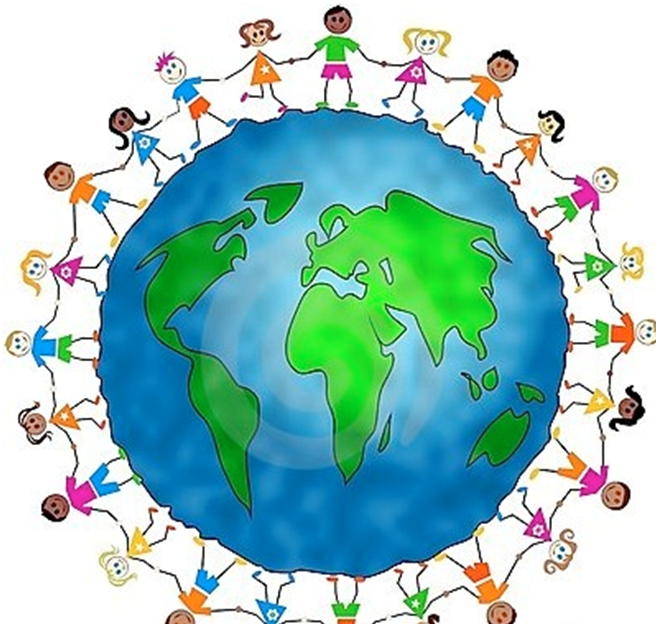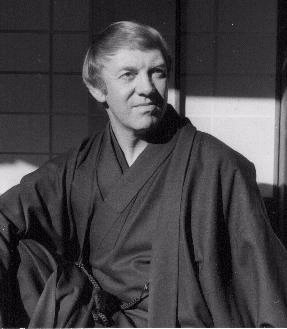Poem-6
No Men are Foreign
By James Kirkup

No Men Are Foreign Poem Introduction
The title 'No Men Are Foreign' refers to the fact that the no men are from another country. The poet wishes to convey the message that all men are the same, that all men are equal. He wishes to spread the idea of universal brotherhood. The poet's intention in writing this poem is to convey the idea that everyone in the world is the same. All people, all men are the same – they eat, live, and die in the same manner. Nature's bounty, such as sunshine and land, is shared equally by all. It is also referred to as a peace poem.
No Men Are Foreign Poem Summary
The poem 'No Men Are Foreign' begins and ends with the same line: 'Remember no men are strange, no countries foreign,' as the poet wishes to emphasise that all people on this planet are the same and that we have created distinctions by erecting borders and fences, different languages, and so on. We walk on the same Earth while we are alive, and when we die, we will be buried on the same Earth. Another parallel he draws is that we all enjoy good food in times of peace but go hungry during times of war and in the winter.
We all have the same hands that we use to do a lot of hard work. We all have eyes that stay open when we're awake and close when we're asleep. He reminds the reader that whenever we hate someone, we deceive and actually hate ourselves. Furthermore, when we use weapons against someone, we pollute the Earth and make it impure by leaving huge mounds of dead bodies strewn across it.
No Men Are Foreign Poem Explanation
Remember, no men are strange, no countries foreign
Beneath all uniforms, a single body breathes
Like ours: the land our brothers walk upon
Is earth like this, in which we all shall lie.
- Beneath: under
- Strange: unknown
The poet states in the first line that no man is strange, and no country is foreign. As a result, he is attempting to remove the borders that have been erected on Earth to separate different countries. Only then will no country be considered foreign. When there are no borders and everyone is free to move around, we will feel as if every country is our own. The poet wishes to express that the entire Earth is one and that all people who live on it are members of the same human race. Then he says under all of that uniforms worn by soldiers from various countries, the human being is the same. God created us all in the same way. Everyone breathes in the same way. Then he says that all the soldiers are our brothers, that we all walk on the same 'Mother Earth,' and that when we die, we will all be buried on the same Earth.
They, too, aware of sun and air and water,
Are fed by peaceful harvests, by war’s long winter starv’d.
Their hands are ours, and in their lines we read
A labour not different from our own.
Those who are from other countries are referred to as 'they.' We call them foreigners, discriminate against them, and fight with them. The poet says that nature has bestowed all bounties on all people, just as he has on us. Everyone receives equal amounts of sunlight, air, and water, implying that God does not distinguish between people from different countries. During times of peace, when there is no war, we all farm. We live a simple life and eat only what nature provides.
He goes on to say that the way we starve during wars and during the winter is the same way other countries starve. They, too, do not receive food at that time. So he wants to say that foreigners from other countries and we are the same. The poet then says that their hands are the same as ours, and they work just as hard as we do. He is using all of these examples to demonstrate to the reader that there is no difference between us and people from other countries.
Remember they have eyes like ours that wake
Or sleep, and strength that can be won
By love. In every land is a common life
That all can recognise and understand.
The poet requests that the reader remember something. He advises us to remember that the people of another country, whom we consider to be our enemies, have been endowed by God with a similar appearance to us. God gave them eyes like ours, which open when we are awake and close when we sleep. Similarly, he has given them the strength to win through love. Then he says that there is one thing that every country, every land has in common, and that is life. All living things are referred to as "life." And if we can recognise them, understand their feelings, and recognise that they are similar to us, there will be no fights or wars between us.
Let us remember, whenever we are told
To hate our brothers, it is ourselves
That we shall dispossess, betray, condemn.
Remember, we who take arms against each other
- dispossess: dislodge; deprive
According to the poet, whenever someone tells us to hate someone from another country, to think of him as our enemy, and whenever we think of someone as our enemy, we deprive ourselves, cheat ourselves, and condemn ourselves. He believes that we should avoid such negativity. We should not regard anyone as an enemy. During a war, both parties must bear the cost of the loss. That is why, according to the poet, war is not in our favour. He says that whenever we choose a weapon to use against someone, we should keep one thing in mind......
It is the human earth that we defile.
Our hells of fire and dust outrage the innocence
Of air that is everywhere our own,
Remember, no men are foreign, and no countries strange.
- defile: make dirty; pollute
- outrage the innocence of: violate the purity of
We must remember that whenever we choose weapons against anyone, we pollute the Earth because weapons kill people and their bodies, which fall to the ground, pollute the Earth. When war breaks out, there is a lot of bloodshed, fire, and death. These dead bodies accumulate on the Earth, polluting it. The erupting fire of war, the smoke that comes out, the dust that fills the air – it is so filthy that it pollutes and offends the purity of the air. With all of this, the poet wishes to convey the message that we should prevents from engaging in war.
No Men Are Foreign Poem Literary Devices
Rhyme Scheme – The entire poem is written in free verse. There is no rhyme scheme in the poem.
The literary devices used are as follows –
Alliteration: The repetition of a consonant sound in two or more closely placed words is called alliteration. The instances of alliteration in the poem are –
Stanza 1 – Body, breathes ‘b’ sound is repeated
Stanza 2 – war’s, winter ‘w’ sound is repeated
Metaphor
Stanza 1 – Uniform refers to the military of different countries
Stanza 2 – wars time is compared to the winter season
Repetition: It is used in the entire poem.
‘Remember’ word is repeated 5 times in this poem.
‘Remember, no men are strange, no countries foreign’ is repeated in stanza 1 and stanza 5
Enjambment – running lines of poetry from one line to the next without using any kind of punctuation to indicate a stop. Instances of enjambment in the poem are as follows-
Stanza 1 – line 2, 3 and 4
Stanza 2 – line 3 and 3
Stanza 3 – line 1, 2, and 3
Stanza 4 – line 1 and 2
Stanza 5 – Line 2 and 3
About the Poet

James Kirkup (1918-2009) was the former Executive Editor – Politics for The Telegraph and the Director of the Social Market Foundation. For 16 years, he worked as a lobby journalist. He was an accomplished poet and translator. Several dozen poetry collections and six volumes of autobiography are among his works.

 ACERISE INDIA
ACERISE INDIA
